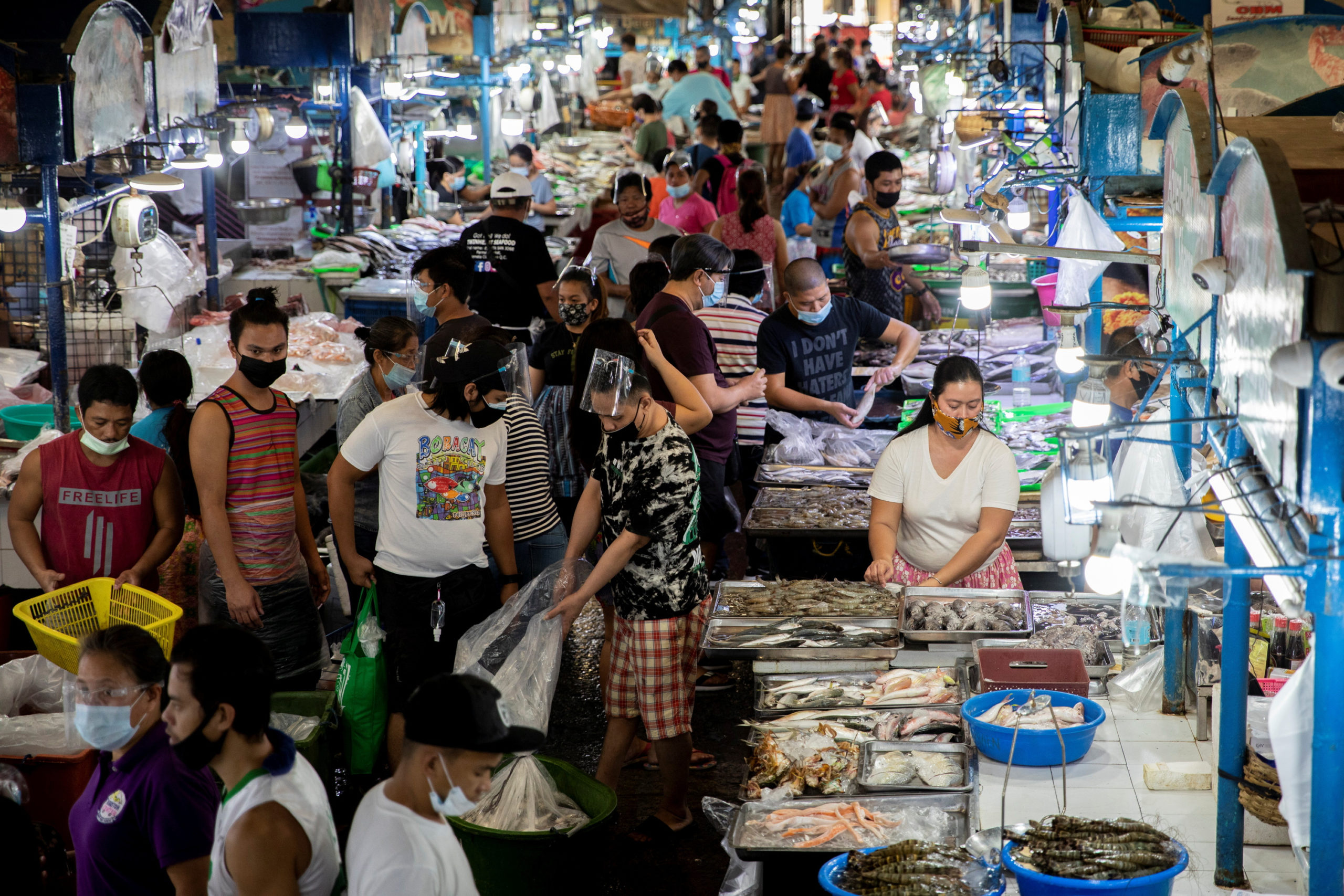Almost half of Filipinos still rate themselves ‘poor’

FILE PHOTO: REUTERS/Eloisa Lopez
Almost half of Filipino families rated themselves as “poor” while about a third considered themselves “food poor,” according to a Social Weather Stations (SWS) survey conducted from Sept. 29 to Oct. 2.
The results of the survey, released on Thursday, showed an estimated 12.6 million Filipino families, or 49 percent of Filipino families in the country, considered themselves poor in October, barely changed from 48 percent, or 12.2 million recorded in June.
Around a fifth, or 21 percent, rated themselves as “not poor” while 29 percent said “borderline,” or placed themselves on a horizontal line dividing poor and not poor.
‘Food poor’
The respondents were also asked, “Based on the type of food eaten by your family, where would you place your family on this card?” The survey found 34 percent of families rating themselves as “food-poor,” 38 percent as “food borderline” and 28 percent as “not food-poor.”
Compared to June, the percentage of food-poor families stayed at 34 percent, while food borderline families fell slightly from 40 percent, and not food-poor families inched up from 26 percent.
Article continues after this advertisementThe survey, the first taken under the Marcos administration, used interviews of 1,500 adult respondents nationwide and a margin of error of plus-or-minus 2.5 percentage points for national percentages, plus-or-minus 5.7 percentage points each for Metro Manila, the Visayas and Mindanao, and plus-or-minus 4 percentage points for Balance Luzon.
Article continues after this advertisementBetween June and October, self-rated poverty slightly rose in all areas except Luzon outside Metro Manila where it remained at 36 percent. It increased from 64 percent to 68 percent in the Visayas; from 41 percent to 44 percent in Metro Manila; and from 62 percent to 64 percent in Mindanao.
Self-rated food-poverty also rose in all areas except in Luzon outside Metro Manila where it fell from 28 percent in June to 22 percent in October. Self-rated food-poverty rose in the Visayas from 37 percent to 44 percent; in Mindanao from 45 percent to 50 percent; and in Metro Manila from 31 percent to 33 percent.
—REPORT FROM INQUIRER RESEARCH
READ: More Metro Manila folk see themselves as ‘borderline poor’ – SWS